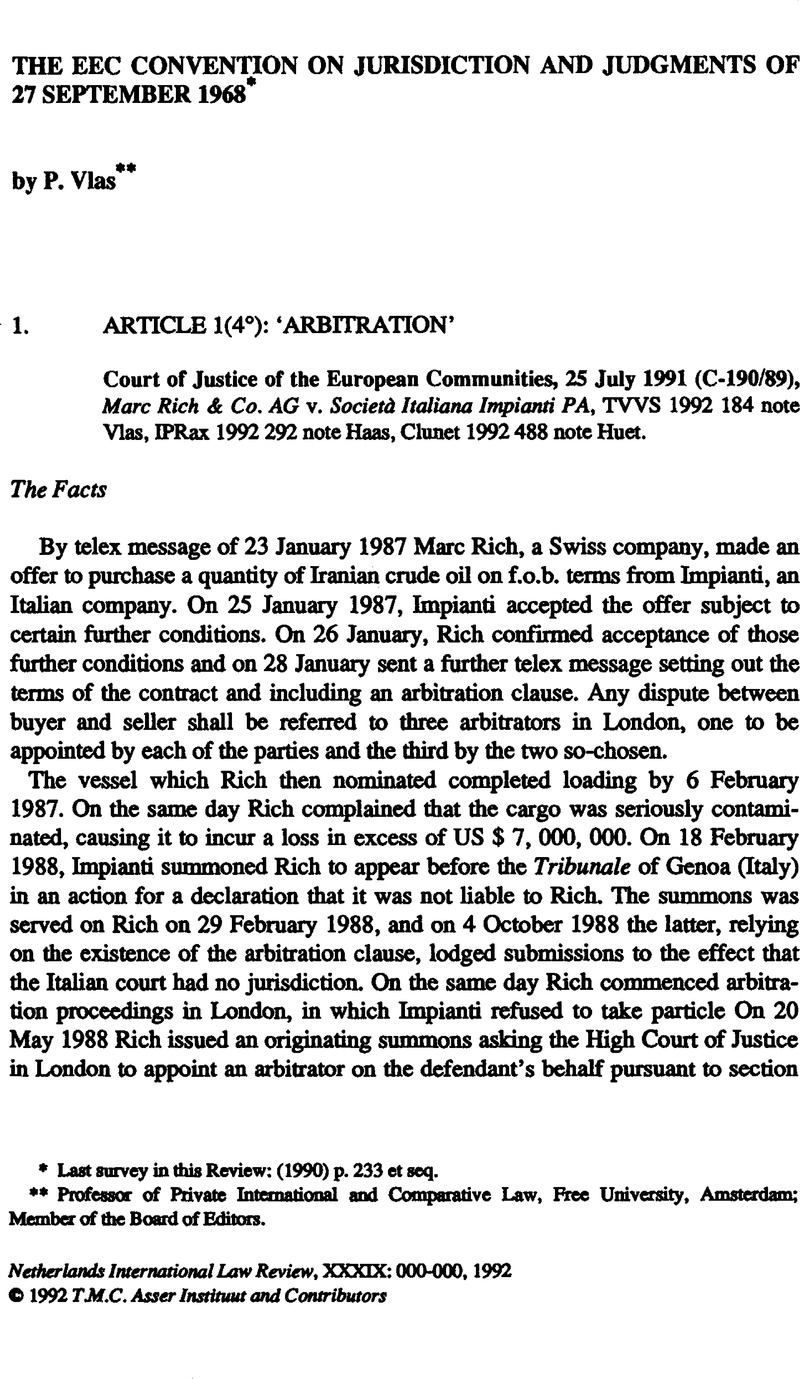No CrossRef data available.
Article contents
The EEC Convention on Jurisdiction and Judgments of 27 September 1968*
Published online by Cambridge University Press: 21 May 2009
Abstract

- Type
- Civil Jurisdiction and Enforcement of Judgments in Europe
- Information
- Copyright
- Copyright © T.M.C. Asser Press 1992
References
1. Art. 6(2) reads as follows: ‘Notwithstanding the provisions of Article 4, a contract of employment shall, in the absence of choice in accordance with Article 3, be governed: (a)by the law of the country in which the employee habitually carries out this work in performance of the contract, even if he is temporarily employed in another country; or (b)if the employee does not habitually carry out his work in any one country, by the law of the country in which the place of business through which he was engaged is situated; unless it appears from the circumstances as a whole dial the contract is more closely connected with another country, in which case the contract shall be governed by the law of that country.’
2. This treaty came into force on 1 April 1991 in Belgium, the Federal Republic of Germany, Denmark, France, Greece, Luxembourg, Italy and the United Kingdom. The treaty came into force in the Netherlands on 1 September 1991, in Ireland on 1 January 1992 and in Spain and Portugal on 1 August 1992.
3. Afterwards, the Convention came into force in Luxembourg on 1 February 1992, in the United Kingdom on 1 May 1992, and in Portugal on 1 July 1992. See Pellis, L., ‘All Roads Lead to Brussels: Towards a Uniform European Civil Procedure’ 37 NILR (1990) p. 372 et seq.CrossRefGoogle Scholar
4. The San Sebastian Convention came into force for the Netherlands, France and Spain on 1 February 1991, and subsequently for the United Kingdom (on 1 December 1991), Luxembourg (on 1 February 1992), Italy (on 1 May 1992) and Portugal and Greece (on 1 July 1992).


